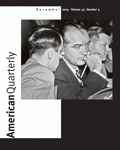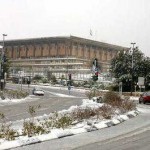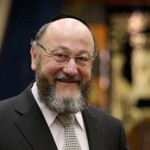
If you are reading this, you have almost certainly been affected by the life and philanthropy of Edgar Bronfman, who passed away Saturday. An heir to the Seagram’s beverage fortune, Bronfman used much of his wealth to contribute positively to Jewish students of all stripes, including creating the Bronfman Israel Fellowships, which has sent over 1,000 Jewish high school seniors to Israel since its inception in 1987. Its alumni include Jonathan Safran Foer and Lemony Sincket, among many of the other most influential Jewish writers, thinkers, and leaders today. Through the Samuel Bronfman Foundation, he started many much-needed inter-denominational conversations and learning-sessions among Jews of all sects. He also gave generously to Hillel and Birthright. Say what you will about these institutions, without them, many Jewish students wouldn’t even know enough about Jewish life to know how flawed these institutions are.
Sometime this week, drink a Seagram’s (we prefer ours with gin) in memory of the man who brought you Shabbat on campus, took you to Israel, and only asked that it leave you a “proud Jew” like him (or not).
Universities say ASA’s Attempt at BDS is Mostly Just BS

Last week, the American Studies Association voted to boycott Israeli academics. In that time, nearly every major university in the country has denounced it as a hypocritical and self-defeating violation of academic freedom. Penn State Harrisburg and Brandeis have both withdrawn their memberships in the ASA in protest. No university has thus far endorsed the boycott. The full text of the boycott can be found here.
For me, the point of this boycott is as hard to understand as the motives behind it. In essence, it seems to be meant to restrict academic freedom (and a small obstruction is still an obstruction) as a protection for academic freedom. As Prof. Jerry Coyne pointed out on his blog , “Since the ASA cites America as complicit in the oppression of Palestine, why didn’t it call for a boycott of American universities as well?” It is also important to note that Palestinian leadership does not condone academic boycotts of Israel. It is the official stance of New Voices that since we welcome free and open dialogue on anything and everything, we reject censorship in the name of free speech, particularly for professors, a group more likely than most to open a constructive dialogue. As Coyne implies, the typical American Studies professor in Haifa is as almost as much to blame for the tragic situation of Palestinians as your American Studies professor here.
As for motive, while only God knows the heart, their choice of advertised defender plus this chart from Tablet makes you wonder what this is really all about.
ChabadLink Knows a Rabbi You Might Want to Meet
Chabad’s new ChabadLink app joins students to their campus shluchim with the touch of a button. As the article explains, all a concerned Jew has to do is enter in a student’s name and where she lives, and an email with contact information will be sent to the nearest outreach rabbi, while his info is automatically sent to her.

I imagine this app is ideally meant to work something like this: Step 1: A well-meaning friend or Chabad shilach exchanges the contact information of a Jew and his local Chabad rabbi. Step 2: The lost Jew comes to that rabbi’s house for a Shabbat meal. Step 3: He comes back during the week to lay tefillin. Step 4: He dons a black fedora and accepts the Rebbe as infallible and possibly still living. Step 5: Moshiach comes.
I can’t help but find this both heart-warming and more than a little disturbing in the way I find much else related to Chabad. On one hand, of course I’m happy it will lead to many more mitzvot being performed and many more Jews potentially getting an opportunity to connect to their heritage. But on the other, I hope someone who knows programming far better than I is currently working on a similar app that will send curious Jews contact information to local rabbis and Jewish institutions of all kinds. This would give curious Jews the tools to explore the many flavors of Jewish life— Chabad included—that their region may have to offer, while also empowering them to honestly find the path that’s right for them.
Knesset Says No to Christmas Tree
Speaker of the Knesset Yuli Edelstein rejected the request of an Arab Christian MK to erect a Christmas tree in the Knesset earlier this week. MK Hanna Swaid of the left-wing Hadash party said he submitted the request as an official gesture of State welcome and support to the country’s Christian population and as an official recognition of the country’s significance to Christians worldwide.

In his opposing statement, Edelstein, a member of Likud, said while Swaid would be free to put up a Christmas tree in his office or in Hadash’s faction room, he respectfully does not think a tree at the Knesset is appropriate.
I say these are strong words from a man whose name literally means “My Yule” in Hebrew. American Jews of all religious and political persuasions often point to Chanukah menorahs on public display in America right beside Nativity scenes as symbolic of the sort of freedom of religion on which our democracy thrives. If Israel is really the lone beacon of democracy and freedom of religion in the Middle East, and the only country in the region with a growing Christian population, there should not be a double-standard. As the Times of Israel article linked to in the heading points out, if there are already is an annual Muslim iftar meal in the Knesset after Ramadan, why can’t the Christians have their holiday? It seems to me that since people who would deny Christian Israelis the right to a Christmas tree in the Knesset are both promoting a double-standard on Israel and undermining it as a democracy, they too, ought to be banned from speaking at Hillels, as per their guidelines. Anything else would be a double-standard.
New Chief Rabbi Breaks with Tradition, Speaks at Limmud
New Chief Rabbi of the UK, Ephraim Mervis, defied ultra-Orthodox pressure to become the first in his position to speak at the four-day interdenominational Jewish festival Limmud. Opponents say that attending the event grants legitimacy to other streams of Judaism. Though his much-loved and respected predecessor, Rabbi Dr. Lord Jonathan Sacks, expressed support for the event early in his career, he has never attended.
In his sessions at the conference, Mervis spoke about the need to foster unity among the Jewish people and expressed delight at the event in general. He was consistently greeted by standing ovations by the diverse crowd.

England’s ultra-Orthodox community is widely known as one of the world’s most reactionary. Since the first conference over 40 years ago, Limmud UK has changed the Jewish world, uniting Jews of all backgrounds and beliefs in a smorgasbord of Jewish learning, life, and culture. It and its spinoff conferences around the world have touched tens of thousands of Jewish lives. If England’s ultra-Orthodox community wants to see this as a bad thing for the Jewish people and use it as an excuse to hole up deeper inside their own navels as a response, that’s their right. But they shouldn’t try to bring all of British Orthodoxy— whom the Chief Rabbi theoretically represents—down with them. Though Rabbi Sacks was brilliant at representing Judaism to non-Jews, his track record at inter-Jewish ecumenicism, or even tolerance, left much to be desired.
Kudos to Chief Rabbi Mervis for showing Orthodoxy doesn’t have to mean fear of ideas, even Jewish ones.
Derek M. Kwait is a graduate of the University of Pittsburgh and current editor in chief of New Voices.

